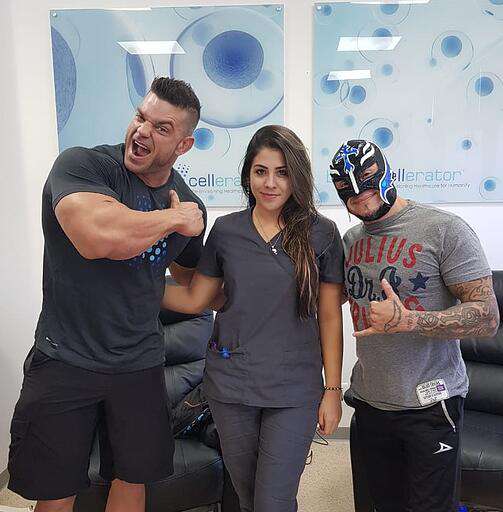Stem cell therapy is, largely, a new technology. It is, however, one with huge potential and a lot of buzz. Celebrities are getting it, the big news of how effective stem cells are at helping people with difficult injuries or chronic conditions hits the news, and the list of what stem cell treatments can help with just gets longer. It’s natural to be interested, but whether you can get stem cell treatments is another matter entirely.
Since this regenerative medicine is so new, long-term studies are lacking. This has impacted how widely available stem cell injections are, and whether they are covered by insurance or by the national health services of countries around the world.
What countries can legally provide stem cell therapy? Let’s get into it:
Different Levels of Legalization
It’s important to note that legalization means something different for every country. It may not be covered by public health systems or insurance in the countries where it is legally provided. In other cases, this regenerative medicine may only be legal on a case-by-case basis, and in others, it may be legal for medical research work, but not available for patients.
What Countries Can Legally Provide Stem Cell Therapy?
Whether it’s for medical research or these countries are offering stem cell therapy for patients, these are the top 10 countries today for stem cell injections:
Europe
Several European countries are pitching to become a leader in stem cell research. The top two today include:
United Kingdom
The UK is well-known for its research institutions, which today includes stem cell research, and the UK Stem Cell Bank, which has been in operation since 2002. This longstanding history in stem cell research lets patients receive high quality treatments and gain access to the latest therapies, but only if it’s during a clinical trial, or to treat blood cancers.
Germany
Germany is home to the Berlin-Brandenburg Center for Regenerative Therapies (BCRT) as well as the Max Planck Institute for Molecular Genetics. They are well-known for their commitment to ethical research, thanks to their extremely strict regulations.
Asia
From south to east, Asia is home to many competing to become the leader in stem cell research.
South Korea
South Korea is one of the leaders offering stem cell treatments to patients home and afar, thanks to their strict regulations and ethical standards. The CHA Medical Group and the Samsung Medical Center are two of the biggest centers offering patients treatment.
China
China has also made massive steps forward in the world of stem cell research. Not only have they made significant advancements in the field, but patience receive the latest in treatments and therapies.
India
Patients in India (and beyond) will find a cutting edge stem cell sector, facilities, and a low cost of treatment. On the flip side, however, patients do need to get treatment approved, which is done on a case-by-case basis.
North America
North America is, of course, a prime destination for stem cell therapy. Patients receive cutting-edge treatments for some of the widest permissible conditions, despite most treatments not being FDA-approved. This is because, in the United States, patients have the option to take on the stem cell therapy cost themselves.
In exchange, patients can gain access to new treatments, such as using stem cells derived from Wharton’s Jelly. This is where we source all of the stem cells at the locations we cover. We do this because these juvenile cells are more likely to be accepted by patient’s immune systems, so they can get to work helping you heal.
How Do Stem Cell Treatments Differ Country to Country?
The big difference between treatments by country is the type of stem cells used in treatment. What are stem cells, and why are there different ones? While stem cells themselves all have the capability of becoming different cells and healing the body, how old they are impacts how effective they are at doing this, and also how ethical it is to use it.
Embryonic cells, for example, can become any cell in the human body, but some countries outright ban this, and others only use it for research purposes.
What are stem cell injections, if they aren’t embryonic stem cells? They are adult cells. Some are sourced from bone marrow, others from umbilical cords. Adult cells all come from donors, are processed, then stored for use in treatments.
When it comes to the treatments that you can get as a patient, know you will, 9 times out of 10, be receiving these adult cells. This is because embryonic cells are not widespread, difficult to acquire, and come with many legal and ethical issues. Adult cells, on the other hand, are widely available, and still useful in the course of treating diseases and chronic conditions.
Interested in Getting Stem Cell Treatment Near You?
Stem cells help the body heal by minimizing inflammation, and also becoming more of the cells that your body needs. If you experience arthritis, for example, stem cells can be injected into your most painful areas to help rebuild tendons. This is just one example of how stem cell treatment can help, of course.
To date, stem cells have been used to treat cancers, arthritis, spinal injuries, and so much more. Of course, just because there’s a widespread list of conditions that stem cell treatment may help with, doesn’t mean that you will always be a good fit.
Here at Bioxcellerator we always start with an in-depth consultation and go through your medical history, your health, and your condition. We will only take you on as a patient if we believe there’s a decent chance of the treatment working. We believe this is essential, especially as the conditions we can help treat with stem cells are not currently covered by insurance.
Before you commit to this treatment, it’s important to have as much information as possible, so get in touch with our experts and book a consultation to learn how stem cell therapy can help you.


